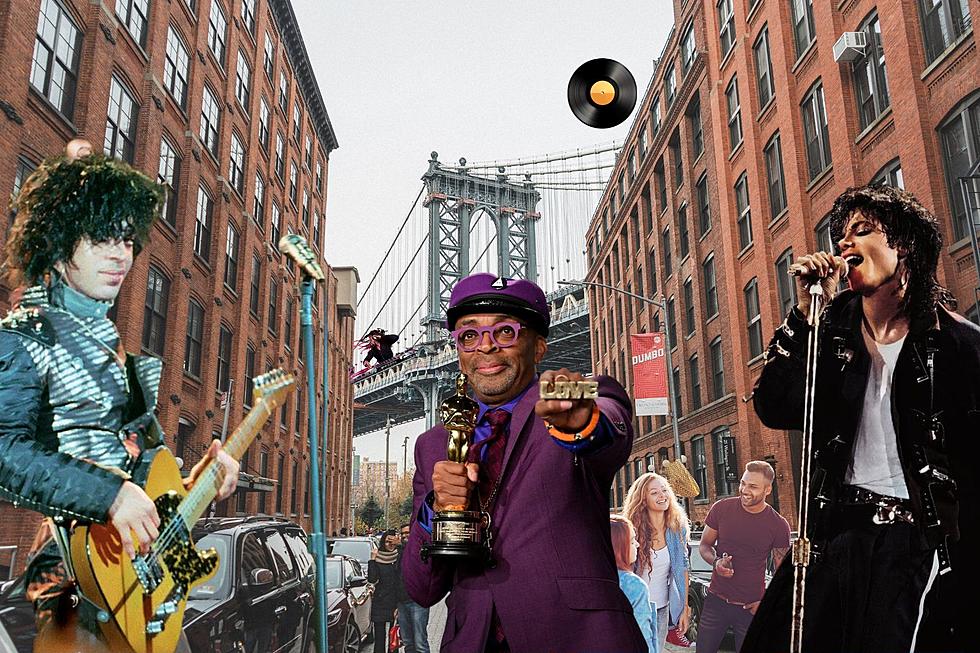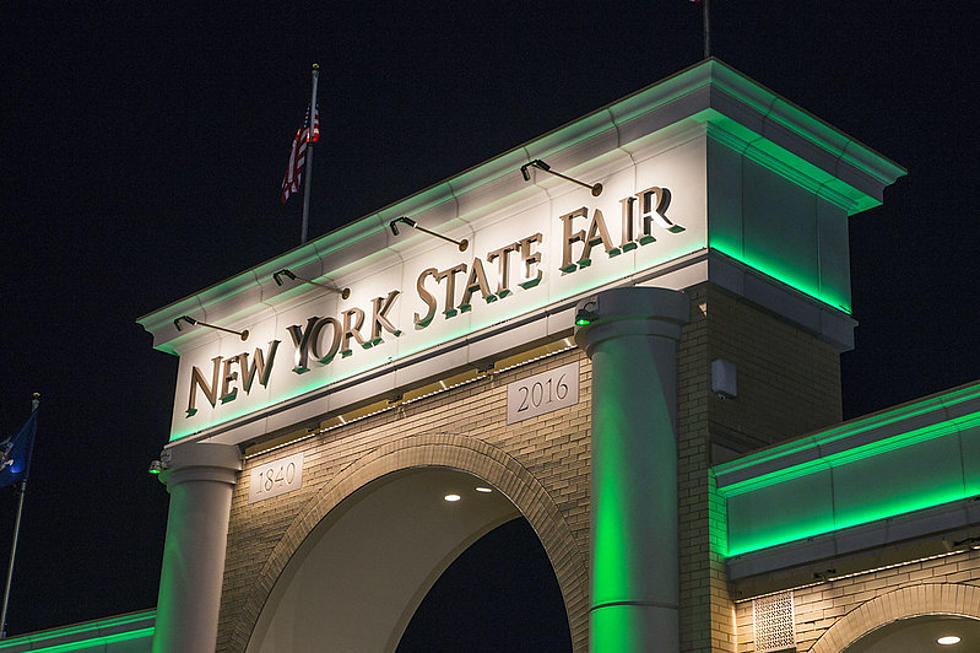![Lip-syncing, Ethics Issue Or Necessity? [VIDEO]](http://townsquare.media/site/40/files/2012/07/milli2.jpg?w=980&q=75)
Lip-syncing, Ethics Issue Or Necessity? [VIDEO]
“Girl you know it's… girl you know it's… girl you know it's… girl you know it's…” Those words (when followed by ‘true’) spelled a Grammy and a handful of AMA’s for Milli Vanilli as they skyrocketed to the top, but no sooner did they hit their apex than those very words spelled their demise when they’re backing track skipped like crazy.
They weren’t the first to incorporate lip-syncing into their live performances and were definitely nowhere near the last, many losing their careers in the process. So, why do it at all if it’s so risky? Is it an ethical blunder or a classic example of expectation versus result?
Check out the video below where their track didn't fail them... YET.
There are a myriad of other artists that come to mind when thinking of this topic, such as Ashlee Simpson, Britney Spears, Madonna, Chris Brown, and even Queen, Nirvana, the Beatles and Michael Jackson are in that group too. Yeah I said Michael Jackson, let’s explore that one: Remember when he danced onstage to Billie Jean and changed history back in 1983 for the Motown 25 special? Well, this may come as a surprise to you but watch the video below and he can be seen obviously lip-syncing the whole time, so why didn’t his career end immediately like so many others since? Could it be that his performance was so visually astounding that the audience didn’t notice or care? We consider Michael Jackson the King of Pop and arguably the greatest entertainer who ever lived. Is performing live just about the music alone or is it about being entertained by more than just our ears?
Since then, other singing dancers have been inspired to incorporate dance into their live shows, like Usher and others mentioned earlier in this article. Singing by itself may not seem all that physically intensive, but it very much is and when combined with strenuous dance steps, it becomes literally impossible to breathe properly to be 100% effective at either skill. In this context lip-syncing becomes not just an attractive option to the artist and their higher-ups, but an absolute necessity.
Dancing isn’t the only factor that makes a show visually appealing. Recently I was watching footage of Journey playing a stadium show back in the early 80’s (see below) with absolutely no light 'show' as we know it today or any kind of visual trappings, just 5 guys on a huge stage, only one of which was moving around to grab your eyes. The music was outstanding and sounded exactly like the record and the crowd was engaged but it was nowhere near visually appealing. Contrast that to their performance at the New York State Fair this past summer and you were treated to lights everywhere, fog machines, video backdrops, beach balls and confetti in the crowd, and even a different lead vocalist who sounds so much like Steve Perry it’s scary. If it was JUST about the music, Journey should be able to walk onstage in 2012 with little to no visual trappings and still be able to entertain a stadium-sized crowd like they did 30 years ago. Right?
So, while in the case of Milli Vanilli where they couldn't sing to save their lives anyway and hired other vocal talent and passed it off as their own (cut and dry ethics issue), artists now at least are lip syncing to their own recorded tracks, so it's still them you're hearing. Not to mention that there are many times when it is actually more practical to avoid singing live like in the case of the Macy's Thanksgiving Day Parade or Superbowl halftime shows where there are many many artists involved or when setup and tear-down of the mobile stage is extremely time sensitive. And by the way, music is never live on music bits in movies or in music videos either, actors and acting musicians are always miming to backing tracks whether singing or playing instruments. Also, since there is a lot more flexibility in the studio to overdub a track and make it sound bigger with several different takes layered, a band when performing live either has to sound emptier or less polished without those parts or they have to play to backing tracks with those missing elements and do the rest live in an effort to get closer to what the listener is used to hearing through their speakers and headphones.
But I guess that's just it, fans when going to a live show want to hear and see live music BECAUSE it's different than the record, which includes all of the imperfections that go along with a raw performance. In our efforts to remain slick, have we lost that organic living/breathing element that is so connected to the heart of music? On the flipside, do many of us simply have a problem since we KNOW what is going on now? We were entertained just fine until we saw it fail and I have a sneaking suspicion that we'd still be just as entertained if we never knew... As a live musician I'll be the first to advocate truly authentic live music but am not opposed to pre-recorded elements and even use them in shows to this date, but... What do you think? PS- what about a newer but just as controversial issue: vocal pitch correction software being used in live shows and recordings alike? Hmmm, sounds like another topic to ponder!
More From Lite 98.7









